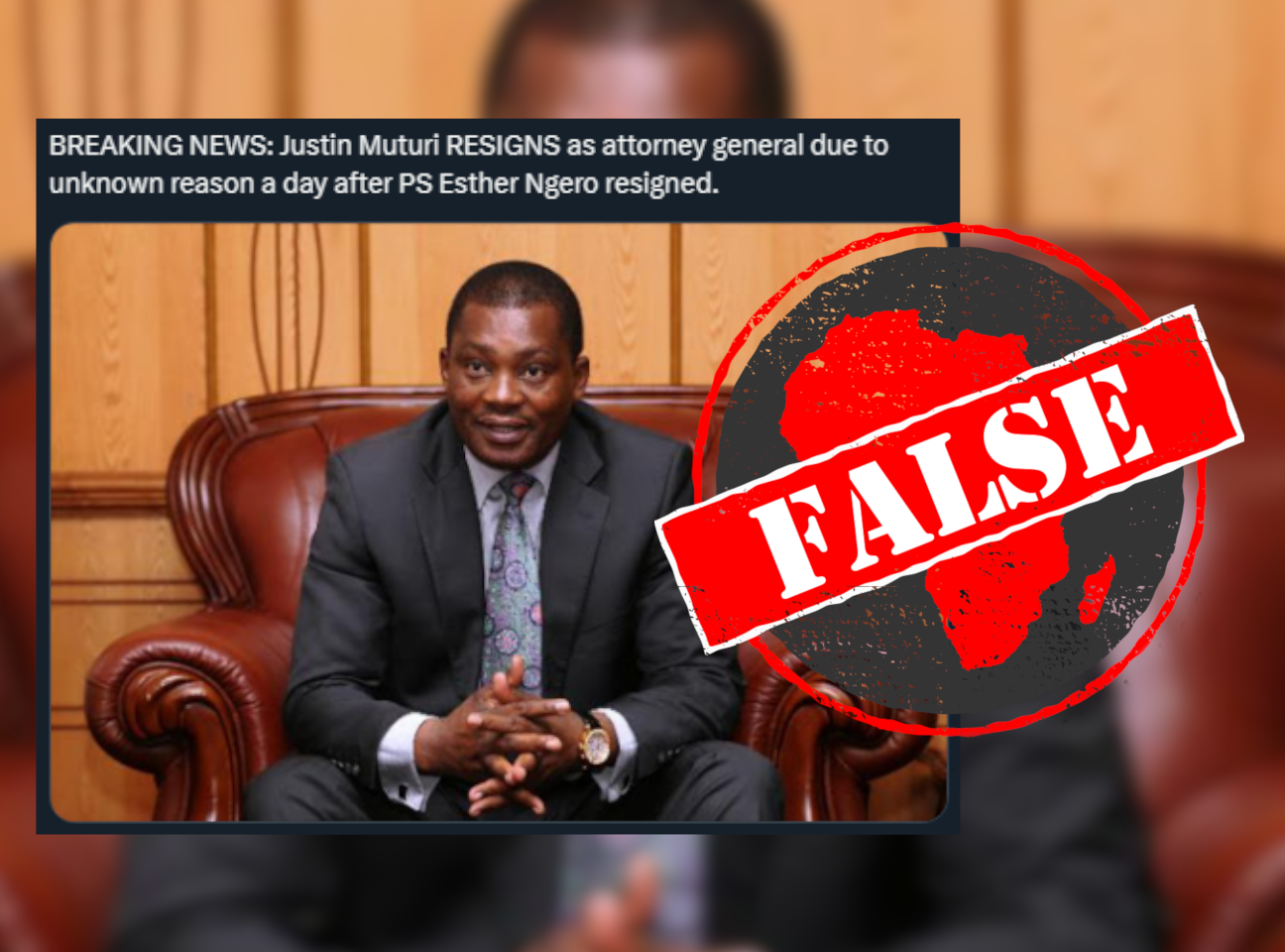IN SHORT: Online claims that Kenya's attorney general has quit, days after another high-profile resignation, are false, his office said.
In late May 2023, an online rumour began circulating claiming that Kenya's attorney general Justin Muturi had resigned.
Among other functions, the attorney general is the government’s main legal adviser and representative in court.
A post seen on Twitter reads: “BREAKING NEWS: Justin Muturi RESIGNS as attorney general due to unknown reason a day after PS Esther Ngero resigned.”
Ngero was permanent secretary in the state department of correctional services. She resigned on 23 May, days after being transferred from the office of the prime cabinet secretary, citing personal reasons.
The post also includes a photo of the attorney general, but does not specify when he allegedly resigned. The claim can also be seen as screenshots on Facebook here, here and here.
The gist of the claim suggests that Muturi resigned in protest over the events surrounding Ngero. It would be a major blow to president William Ruto’s government.
But is it true?

‘Please ignore’
Resignations are rare among government officials in Kenya. News of Muturi's resignation would attract media attention given his public profile. We found no coverage of this.
Africa Check contacted the attorney general's office to confirm whether the resignation claim was accurate. They dismissed it: “Please disregard that news.”
On 24 May, the attorney general’s office posted the claim on its Instagram account and Facebook page with the word “FAKE” stamped on it.
“The above purported news report circulating on social media is fictitious. Please ignore,” the office said.
Republish our content for free
For publishers: what to do if your post is rated false
A fact-checker has rated your Facebook or Instagram post as “false”, “altered”, “partly false” or “missing context”. This could have serious consequences. What do you do?
Click on our guide for the steps you should follow.
Publishers guideAfrica Check teams up with Facebook
Africa Check is a partner in Meta's third-party fact-checking programme to help stop the spread of false information on social media.
The content we rate as “false” will be downgraded on Facebook and Instagram. This means fewer people will see it.
You can also help identify false information on Facebook. This guide explains how.


Add new comment